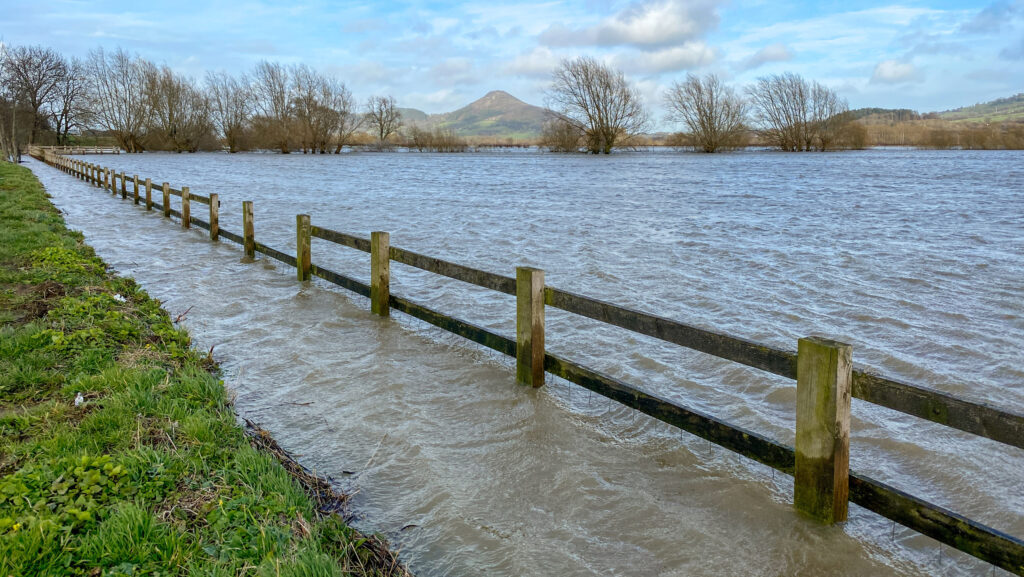Opinion: Why is climate a concern, but net zero so misunderstood?
 © Adobe Stock
© Adobe Stock Farmers are obsessed with the weather, and the weather has become very badly behaved indeed.
Swinging from the wettest 18 months on record, to one of the driest springs ever in the space of a year, things are going very wrong.
And it’s climate science that tells us why.
Scientists are clear that the more greenhouse gases we pump into the atmosphere, the warmer and wetter winters will be, with longer periods of hot, dry weather, as well as more intense rainfall.
See also: It’s the farmer who carries all the risk of regen
About the author

Tom Lancaster is head of land, food and farming at the Energy and Climate Intelligence Unit.
Here he unravels why most farmers recognise climate change, but many oppose net zero targets.
This is exactly what we have seen, with science clear that the storm rainfall in 2023-24 was a fifth heavier due to climate change, and recent heatwaves a hundred times more likely.
And if we don’t stop releasing those emissions, this only gets worse, hence the “net zero” emissions target.
Farmers are on the front line of this.
Farmer survey
At the Energy and Climate Intelligence Unit, we worked with Grounded Research to commission a survey of UK farmers’ experiences of, and attitudes towards, climate change.
Only 2% of the 300 farmers surveyed said they had not been affected by an extreme weather event in the past five years, while 87% saw a hit to productivity, and 84% a reduction in crop or livestock output.
More than two thirds said they had made changes to how they farm in response to extreme weather linked to climate change.
Farmers are clear eyed about the scale of the problem.
We asked if “climate change is having a negative impact on UK food production” and whether addressing it is a “priority for UK food security, even if that means changing what and how we farm, and the food people consume”.
Some 54% agreed, while less than a third disagreed with that statement.
While we need to better adapt to climate impacts now, the science is clear that halting the rise in greenhouse gas concentrations in the atmosphere is the only way to stop climate change and the ever more extreme weather that comes with it.
Net zero
The scientific term for this is “net zero” – balancing any lingering emissions with sucking carbon dioxide out of the air.
While a third of farmers understand climate change cannot be stopped without net zero, another third think it can. A further third don’t know.
This may help explain the divided opinion on the UK’s net zero target, with 40% of farmers backing it, 37% opposing and 23% unsure.
That compares with 66% support for net zero among the general public.
It’s worth remembering that net zero by 2050 is not the “arbitrary” target it is often portrayed as.
It is a target based on independent scientific advice and consensus, in line with the aim of keeping warming to a “safe” 1.5C (above pre-industrial levels).
Luckily, many farmers are already adopting measures that will aid both resilience and emissions reductions
Pinning down a reason for this disparity between concern for the problem and support for the solution is not easy.
Media misinformation is likely to play a role, as is the fact that reducing emissions from agriculture is not easy, or without its compromises.
But as worsening extreme weather demonstrates, not tackling climate change will entail more significant and less manageable risks as impacts escalate.
Luckily, many farmers are already adopting measures that will aid both resilience and emissions reductions.
Around 60% say they would consider habitat creation, a quarter tree planting and a fifth woodland creation.
Another 63% would use cover crops and other measures to improve soil health, and half would plant hedgerows.
Farmers recognise the problem, and will adopt the practical solutions with the right incentives, even if net zero isn’t the motivating reason.
